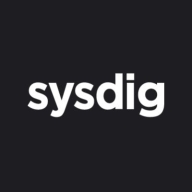


Find out what your peers are saying about Palo Alto Networks, Wiz, SentinelOne and others in Container Security.



Prisma Cloud by Palo Alto Networks provides comprehensive cloud-native security solutions. It covers dynamic workload identity, automated forensics, and multi-cloud protection, ensuring robust security across diverse cloud platforms.
Prisma Cloud delivers advanced capabilities for managing cloud security across AWS, Azure, and GCP platforms. It offers dynamic workload identity creation, real-time monitoring, and seamless integration into CI/CD pipelines. With automation, centralized dashboards, and enhanced visibility, users effectively manage security misconfigurations and vulnerabilities. While optimizing cloud environments through runtime protection and compliance, Prisma Cloud faces challenges with its navigation, pricing, and limited automation capabilities. Users seek improvements in API security, role-based access controls, and documentation quality, emphasizing the need for enhanced customization and reporting features.
What are the important features of Prisma Cloud?
What benefits or ROI should users consider in reviews?
Industries like finance and telecom rely on Prisma Cloud for managing cloud security posture and container security. Teams utilize its capabilities across hybrid and multi-cloud settings to ensure compliance and robust threat protection. Features like misconfiguration detection and runtime monitoring are critical in promoting security objectives in these sectors.
In the cloud, every second counts. Attacks move at warp speed, and security teams must protect the business without slowing it down. Sysdig stops cloud attacks in real time, instantly detecting changes in risk with runtime insights, a unique AI architecture, and open source Falco. Sysdig delivers live visibility by correlating signals across cloud workloads, identities, and services to uncover hidden attack paths. By knowing what is running, teams can prioritize the vulnerabilities, misconfigurations, permissions, and threats that matter most. From prevention to defense, Sysdig helps enterprises move faster and focus on what matters: innovation.
Sysdig. Secure Every Second.
Tenable.io Container Security is a container security platform that delivers end-to-end visibility of Docker container images, providing vulnerability assessment, malware detection, and policy enforcement before and after deployment. It also integrates into your DevOps pipeline to eliminate security blind spots without slowing down software development. In addition, Tenable.io Container Security provides proactive visibility and security so your organization can solve the security challenges of containers at the speed of DevOps.
Tenable.io Container Security Features
Tenable.io Container Security has many valuable key features. Some of the most useful ones include:
Tenable.io Container Security Benefits
There are many benefits to implementing Tenable.io Container Security. Some of the biggest advantages the solution offers include: